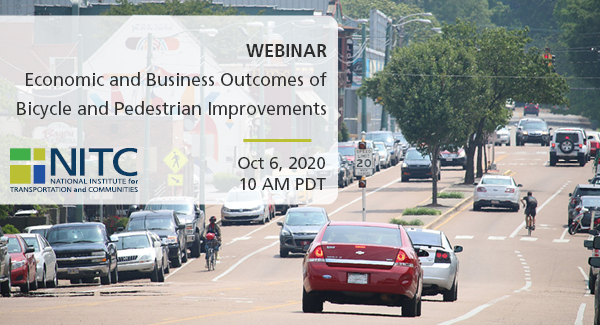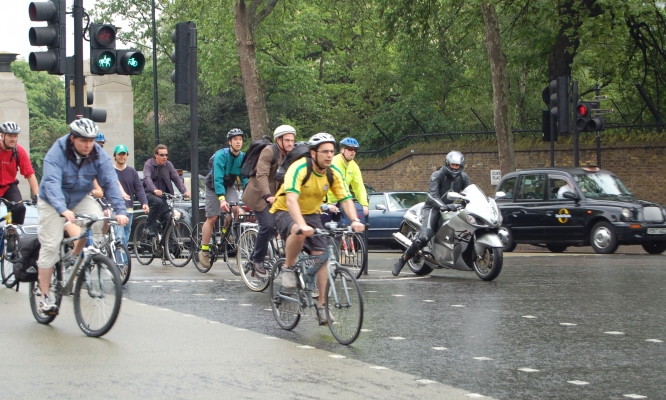Watch video
View slides
The overall goal of this research was to quantify the safety performance of alternative traffic control strategies to mitigate right-turning-vehicle/bicycle collisions, often called "right-hook" crashes, at signalized intersections in Oregon.
A two stage experiment was developed in the OSU high-fidelity driving simulator to investigate the causal factors of right-hook crashes at signalized intersections with a striped bike lane and no right-turn lane, and to then identify and evaluate alternative design treatments that could mitigate the occurrence of right-hook crashes.
Experiment 1 investigated motorist and environmental related causal factors of right-hook crashes, using three different motorist performance measures:
- visual attention,
- situational awareness (SA) and
- crash avoidance behavior.
Data was collected from 51 participants (30 male and 21 female) turning right 820 times in 21 different experimental scenarios. It was determined that the worst case right-hook scenario occurred when a bicycle was approaching the intersection at a higher speed (16 mph) and positioned in the blind zone of the motorist. In crash and near crash situations (measured by time-to-collision) the most common cause was a...
Read more

